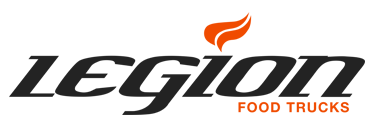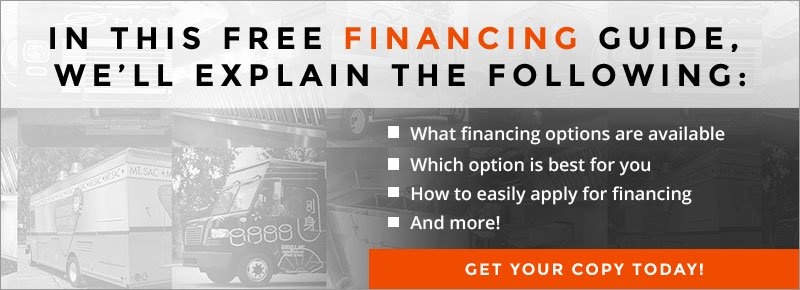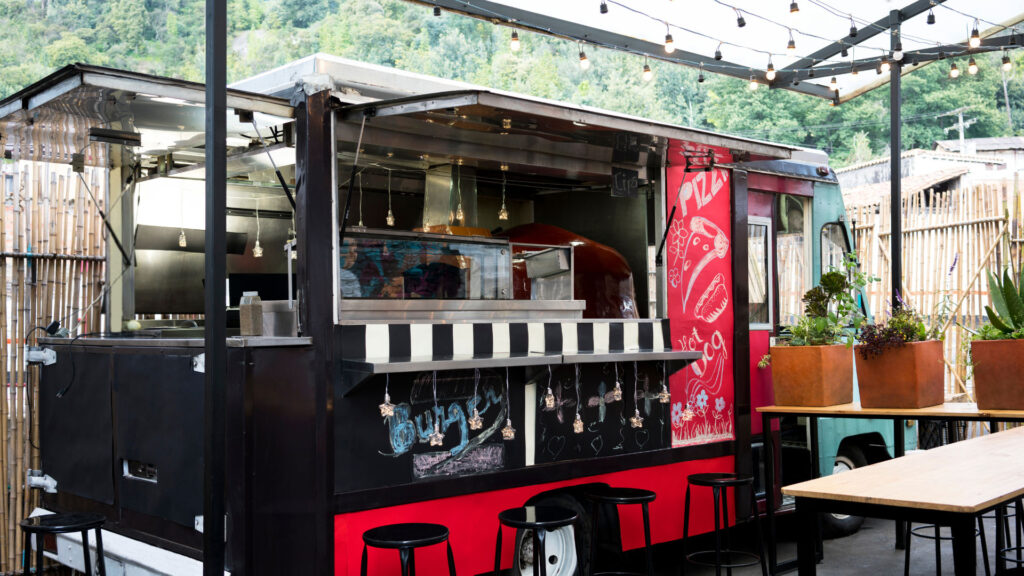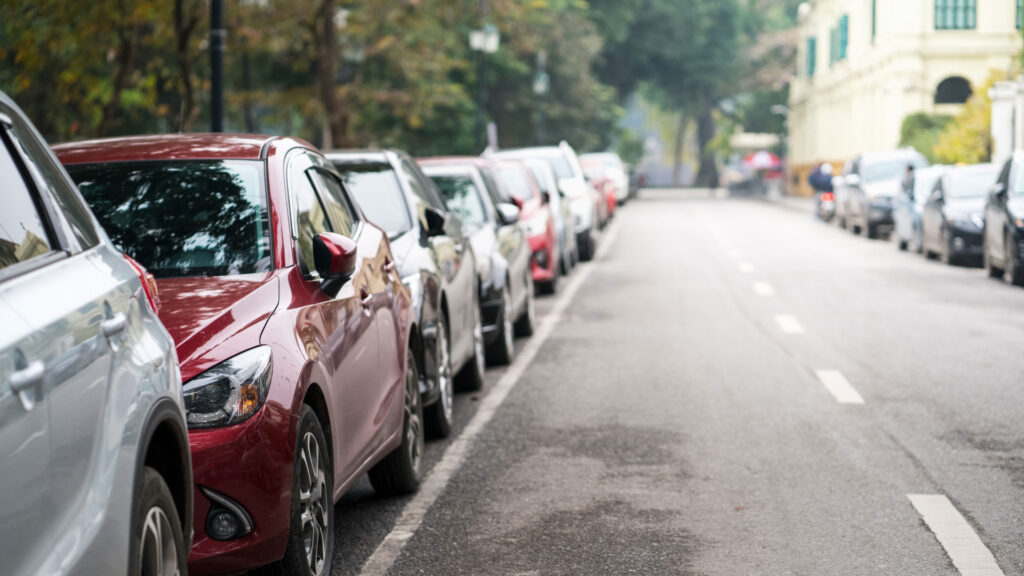Are you contemplating exploring the world of food trucks in 2024? The food truck business has exploded in the past decade as Americans continue embracing mobile restaurants. Owing to this trend, aspiring chefs and entrepreneurs have opted for food trucks as an affordable, lower-risk alternative to opening a brick-and-mortar restaurant.
While the allure of entrepreneurship and the mouth-watering taste of street food may have sparked your interest, it’s important to understand the potential costs of starting a food truck business before going in blindly. In this article, we’ll walk you through the intricacies of starting a food truck business, covering the cost, financing options, and buying a used vs. new food truck.
Food Truck Price Broken Down
On average, starting a food truck business can cost between $50,000 and $200,000. The costs you incur in starting the food truck business vary just like any other business depending on your location, types of kitchen equipment, and food you decide to offer. When starting a food truck, you can expect to pay both fixed and variable costs.
Fixed Expenses
These costs remain constant despite the customer traffic or the sales volume. Most food truck start-up expenses will fall under this category. They include:
- Food Truck Purchase: This is where the heart of your business lies. A food truck’s price can range from $50,000 to $200,000. If you decide to rent, you may get more affordable options ranging from $20,000 to $100,000, excluding renovation costs.
- Equipment: Purchasing the right equipment is essential for the success of your food truck business. Necessary equipment includes a vinyl wrap, cooking equipment, refrigeration equipment, utensils, a ventilation system, and safety equipment.
- Licenses & Permits: Getting the required licenses and permits is vital to running your food truck business legally. The license and permit requirements vary by state and city.
Variable Expenses
These costs are incurred when running your business and are often tied to sales. Common variable costs include:
- Labor Costs: These are wage and salary expenses, varying based on how busy your business is and how many employees you hire.
- Marketing & Promotion Expenses: These include the cost of printing flyers, running social media ads, and attending key events and festivals.
- Software: Besides setting up your website, you will need marketing, accounting, and POS systems for data management and to improve organization and efficiency.
- Utility Expenses: Basic utilities include fuel, electricity, water, waste disposal, phone and internet charges.
- Insurance: Insurance costs vary based on the size of your business, where you are located, and coverage types.
- Food: The cost of food will vary based on your menu, but be ready to spend a lot of your money in this category.
Financing Your Food Truck
If you do not have enough capital to start your food truck business, you should consider getting financial aid. You can get a business loan or explore other types of financing to cover your costs until you are stable. However, you must develop a business plan and conduct extensive market research to cover all demographics.
Buying a Used vs Building a New Food Truck
Used and new food trucks have their pros and cons, which you must evaluate to see which works best for you. If you are contemplating purchasing a new food truck versus a used one, here are factors to consider:
Benefits of Buying a Used Food Truck
- Affordability: You can get a used food truck for as low as $35,000, whereas a new one can cost up to $200,000.
- Fast Launch: If you have enough capital, you can get your business up and running in less than a month.
- Permit Ready: If the food truck was operational recently, it probably has all the required permits, saving you the headache of getting the necessary paperwork.
Disadvantages of Buying a Used Food Truck
- No Warranties: If the food truck has been operating for a long time, there’s a likelihood that the warranties have expired.
- Mechanical Issues: Used food trucks are more prone to surprise breakdowns and other mechanical issues, which can lead to costly repairs.
- Limited Customization: Purchasing a used food truck means you cannot customize the kitchen layout to your liking.
Benefits of Buying a New Food Truck
- Customization: You can customize your kitchen to fit your taste and style with enhanced aesthetics that draw in more customers.
- Warranty: A new food truck comes with a warranty that can save you a lot of money in repairs. Similarly, the new kitchen appliances you purchase to fill it will come with their own warranty.
- Lower Mileage: As a food truck ages and gains more mileage, you’re more likely to need a transmission replacement. Buying new ensures you have lots of mileage left on your truck.
New Food Truck Disadvantages
- Extended Lead Time: Customizing your food truck and getting it ready for launch can take as long as six months.
- High Initial Costs: The food truck price for a new truck is often a high initial investment, which can put you back financially if you don’t plan properly. However, it can save you money down the road since you’re less likely to have repair costs.
Launch Your Food Truck Business With Legion Food Trucks
Operating a food truck business requires continuous fiscal oversight to increase the profit margins. By understanding and managing fixed and variable costs and integrating cost-saving strategies, you can prepare yourself for success.
At Legion Food Trucks, we excel at transforming your business idea into a reality. Use our interactive food truck builder to get a free estimate of your food truck costs or submit your finance application today. For more information about our services and products, contact our team.







